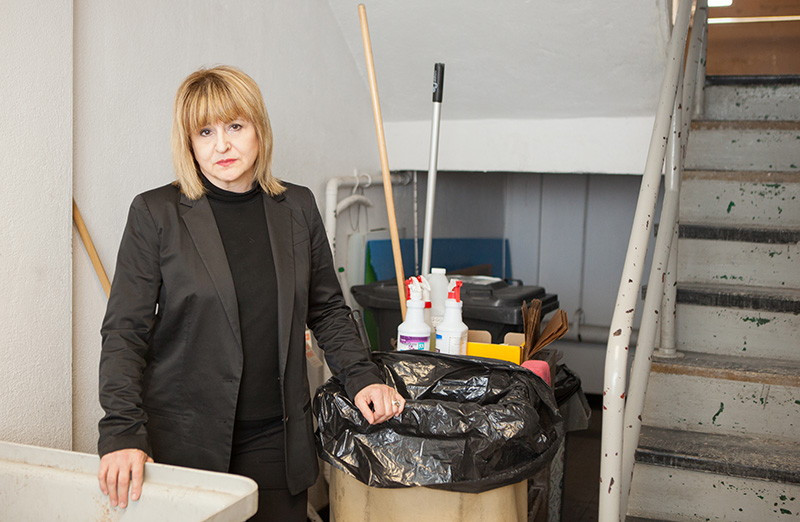U of M unions cry out against privatization on campus
Recent privatization of management and lack of consultation worry leaders
The increasing privatization of management services at the University of Manitoba is leading to increasing frustration among faculty and staff and causing irreparable damage with contractors and employees, union leaders say.
On March 13, Canadian Autoworkers (CAW) Local 3007 told university administration the relationship between private contractor Aramark and Local 3007 employees is growing increasingly fragile.
Since the university hired Aramark a year ago to manage cleaning services on campus, employees have been subject to threats, abuse, bullying and yelling, committee chair Frank Wright said.
“It’s a textbook example of bullying in the workplace,” said Wright.
The relationship between Aramark and the Local 3007, which represents the university’s engineers, food services, grounds, caretaking and skilled trades workers, cannot be repaired, Wright said.
The tattered relationship is only part of a growing list of grievances the university’s six unions - the University of Manitoba Faculty Association (UMFA), CAW Local 3007, the Canadian Union of Public Employees 1482, CUPE 3909, the University Manitoba Students’ Union and the Association of Employees Supporting Education Services AESES - are taking issue with over the increasing privatization of services.
The increased privatization is leading to declining morale.
“For seven years (all of the unions) have been getting together to discuss common issues, this is a result of all unions having a problem with the way the university is being run,” said Wright.
Sharon Alward, president of the University of Manitoba Faculty Association, says services are being increasingly privatized under the university’s Resource Optimization and Service Enhancement Program (ROSE).
The university did not consult with the association on the program, she said.
“It’s all been put on us. We’ve not had any consultation at all,” said Alward, who added that, due to ROSE and a new contract with Xerox that centralizes printing and copying, she now has to walk across campus to a separate building to print a letter of recommendation for a student.
Alward said she’s excited to see the six unions come together to combat the corporatized, top-down model of governance being introduced by the university.
She is lobbying for an all-unions meeting.
“We’re asking, as stakeholders in the university, to have a voice. We’ve been told we have one, but no one is listening,” Alward said.
“Collegial governance ... is really important.”
John Danakas, the university’s marketing and communications director, said there has been no strategic decision to privatize services. The university contracted out caretaking services to find efficiencies and control absenteeism, he said.
The university holds regular town hall meetings to be transparent and inclusive, he said.
“Commitments have been made to resolve a number of the issues raised at the town hall,” including the promise to meet with CAW, Danakas said.
Published in Volume 67, Number 24 of The Uniter (March 21, 2013)








